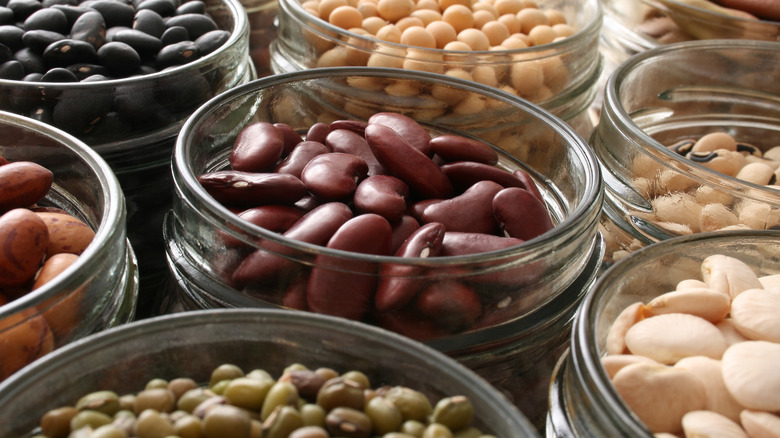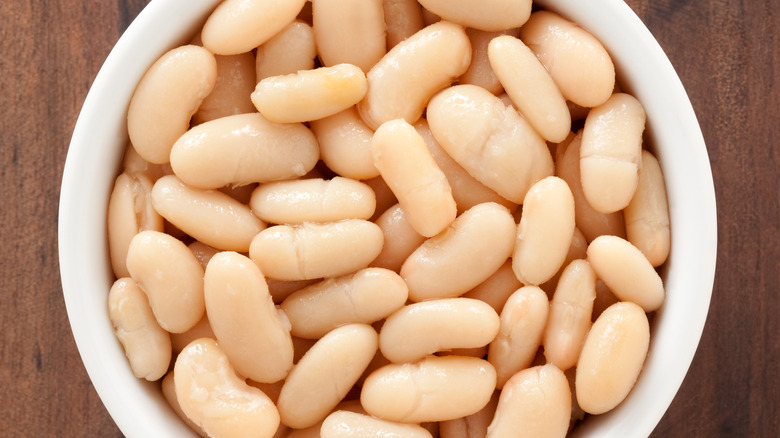The Jarred Beans José Andrés Cooks With Constantly
As beans have evolved from a humble pantry staple into a trendy snack food, debates over canned versus dried beans have erupted again. Purists will claim that dried beans are far superior in terms of taste and texture (as well as being cheaper by volume than canned beans). But preparing dried beans takes a long time, and you simply can't beat the ease of popping open a can of beans, which are ready to use immediately, for a soup, salad, or herby bean toast.
But the Michelin-starred Spanish-American Chef José Andrés, who has 31 restaurants all across the U.S., has a hot take of his own. According to Andrés, a proponent of preserved beans, the best canned beans aren't found in a can but in a jar. In particular, Andrés swears by the Spanish bean brand Conservas Rosara from the Navarra region. Andrés, who is also from Basque country, uses these jarred beans to evoke his homeland when making simple meals at home.
Jarred versus canned beans
Jarred beans have long been popular in Spain, and Conservas Rosara, which also sells a variety of jarred foods like artichoke hearts and roasted peppers, is one of a number of Spanish brands known for their jarred beans. Other popular brands include Perello, Bold Bean Co., and Navaricco. The popularity of beans in a variety of Spanish dishes makes jarred beans absolutely essential, so it's no surprise that they managed to find a way to make them so delicious.
Many of the proponents of jarred beans cite the metal taste that can commonly be found in canned beans thanks to their steel tins. Glass jars are also easy to reuse or recycle, and can be closed up and easily stored in the fridge if you don't get through a full jar. Canned beans will last for about three or four days in the fridge after opening. Jarred beans, on the other hand, can last up to a week if properly stored.
Conservas Rosara's fabulous jarred beans
The beans sold at Conservas Rosara diverge a bit from the more common beans you need to know (navy beans, cannellini beans, black-eyed peas, etc.), and include legumes commonly found in the Basque region. Examples include pochas, a type of sweet white bean harvested before it matures; alubias, or small white beans with a nutty flavor and firm texture; and fabes, the creamy, buttery beans from the Asturias region used to make the popular stew fabada. They also sell several varieties of garbanzo beans (chickpeas), and judión beans (what we would call butter beans).
You can use these jarred beans just the way you would use canned beans, but you may prefer to try out some Spanish dishes as well. Cook any variety of white beans in a paprika-spiced tomato broth and serve with a side of crusty bread, or opt for pinto beans in a salty pork dish. Or try your hand at Alubias de Tolosa, a popular stew made with Tolosa beans, which are similar to black beans. No matter what you cook, you can't go wrong with jarred Spanish beans.



